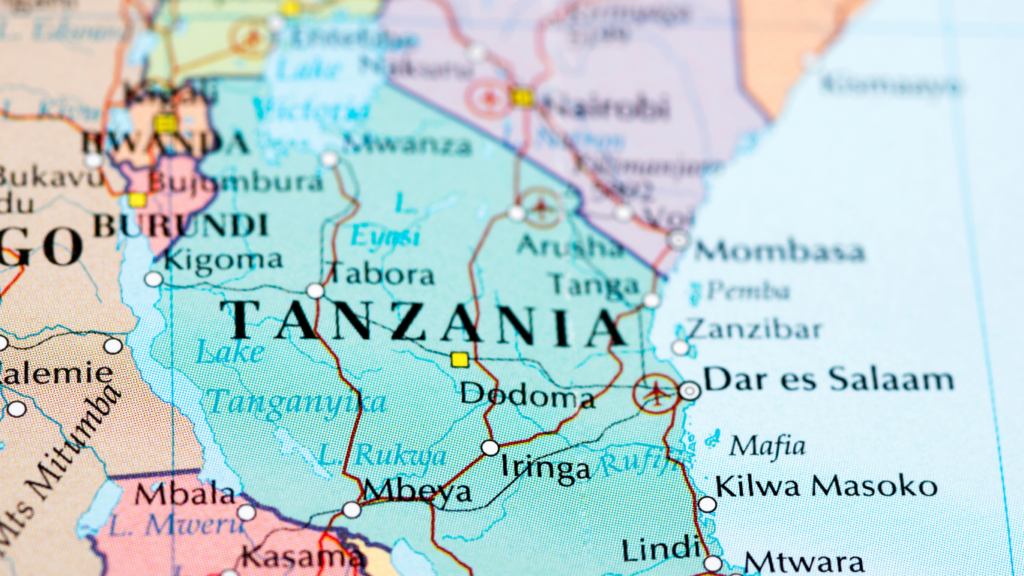News
Bishop Scott’s February Reflection from Tanzania
February 6, 2023
Pazeni, sauti, ili nasi mwimbe! Raise your voice to sing with us!
Watu wote, viumbe vyote, eyaye yote sifu Mungu. All people, all creatures, everyone praise God!
“O Sifuni Mungu” – First Call ©2022
Beloved in Christ,
I’m writing to you from my room at Lutheran Uhuru Hotel in Moshi, Tanzania, at the end of the 2023 Tanzania Vision trip. We have been in country since January 23rd, and it has been two weeks of life-changing experiences for the entire group.
Many of you know the longstanding relationship that exists between Lutherans in Nebraska and Tanzania. This relationship predates the founding of the ELCA, and even the mergers that created the ALC and LCA. There have been Lutherans from Nebraska dedicated to the mission of the church in Tanzania for over 100 years, including the last 30 years in which the Northern Diocese of the ELCT and the Nebraska Synod of the ELCA have been in an official “companion synod” relationship (The Nebraska Synod is also a companion synod to the United Evangelical Lutheran Church of Argentina and Uruguay).
One member of our group noted this week that we could learn much from our hosts about how to coexist peacefully, especially if we paid attention to the way driving in Tanzania is different than driving in America. She noted that in Tanzania, drivers are constantly adjusting to make room for others around them, almost dancing with one another on roads that are much different than our own. If a driver here makes a “mistake,” others on the road with them will almost always smile, wave, shrug their shoulders, and continue on their way. Compare this to the experience most of us have in America, where horns are used to express anger, drivers block one another instead of making room for each other, and the most common physical gesture when a driver makes a mistake involves one particular finger waving indignantly. It has been interesting to watch how our drivers accommodate the other drivers around them these last few weeks, and I don’t remember a single instance of anger, frustration, or overt aggression.
This is just one instance that has stuck in my mind and memory during our time here, but it has a particular meaning for us as we think on our theme for this month’s Nebraska Synod E-News: Celebrating Diversity. Our ongoing work in justice, equity, diversity, and inclusion can be envisioned as how we travel together in our world. Here in Tanzania, roads are shared by pedestrians, bicyclists, motorcycles, three-wheeled vehicles from India known as “tuk-tuks,” cars, SUVs, safari vehicles, public transit vans, buses, and freight trucks. They all move together on mostly two-lane highways that are often capped at 100 kph (roughly 60 mph) and regularly use speed bumps and rumble strips to warn vehicles to slow down to 50 kph in urban areas. It would be very easy for the larger, faster vehicles to completely dominate the road, but doing so would put everyone else in danger. So drivers make room when they can. They communicate what they’re trying to do to the people around them. Everyone makes sure than everyone gets where they need to go, even if it slows down their individual travel to do so. Would it be so horrible if we all approached our travel together in the same way?
We will be sharing many articles this month about our ongoing work of justice, equity, diversity, and inclusion. My question for all of us this month is this: how can we make room for one another in our travel together, so that we can all arrive at home safely and peacefully? What are the ways we can make our travel together more joyful, more welcoming, less aggressive and angry? How can our commitment to a wider welcome in God’s church make the way of faith safer for all of God’s children, and in so doing, raise a stronger, more joyous song of praise to God?
Njema safari, friends. Good travels!
Bishop Scott Johnson
